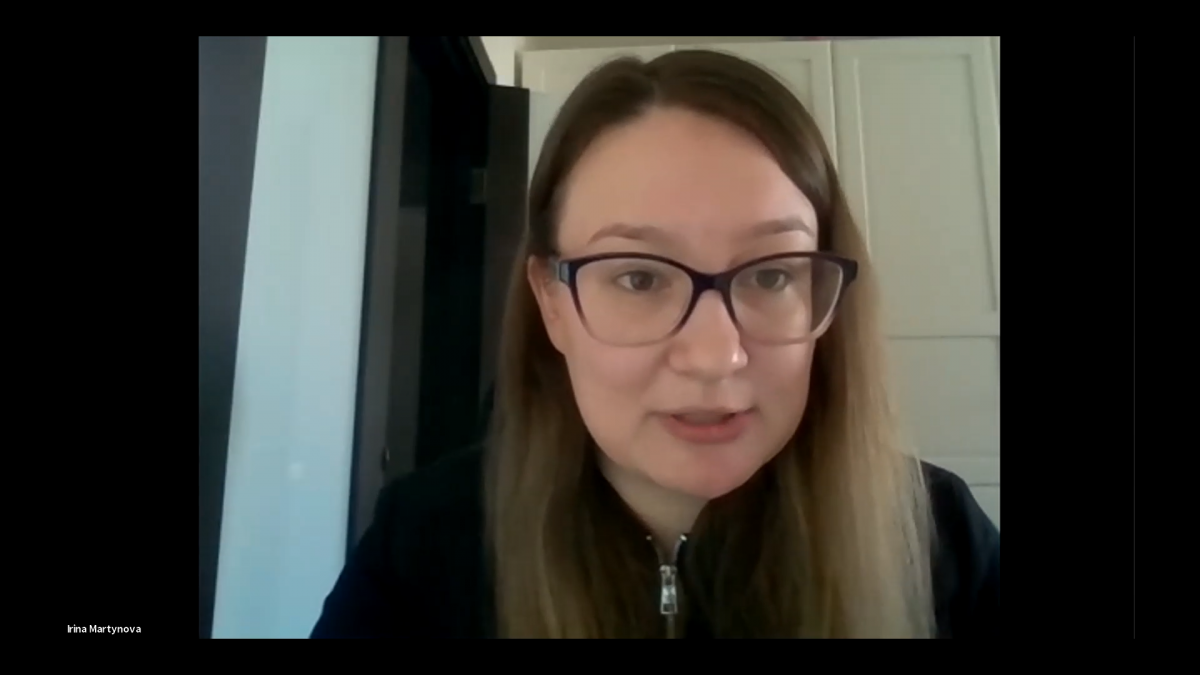On September 28th the fourth session of INSMEAcademy on Building Entrepreneurial Ecosystems examined Corporate Venturing in Russia with Generation S Corporate Accelerator, INSME Member. Irina Martynova and Aleksandra Sukhareva, respectively Head of Corporate Direction of Generation S Corporate Accelerator, and TechLab Lead at PepsiCo Russia, participated as speakers to the webinar, which was moderated by INSME Secretary General, Giovanni Zazzerini.
Ms. Martynova began by highlighting the role large companies play in innovation promotion and development in Russia, despite the country not being one of the best players in the field of innovation. She then went on to describe recent trends for the Russian corporate accelerator mechanisms:
- They are becoming the consistent model to work with, as their competence in developing sustainable models for start-ups take them beyond the first phase.
- Russian corporations are struggling to work with innovation, as venture builders tend to have little success in the first year of activities. Corporate accelerators tend to be the most efficient way to structure innovation in the company to build innovation centres for later stages of development.
- Corporate venture funds now take advantage of the accelerator’s deal flow: the pipeline of starts ups with become alumni and become more likely to receive funding
- The funding go/non-go decisions are becoming more and more linked to the company’s financial background, with a focus on trying to predict the financial impact (highlighted by the pandemic)
- Corporate accelerators which were born inside of a company are starting accelerations programmes for start-ups, an efficient way to unite players and develop new innovations through a cost-efficient model.
Asked if she believes large companies have understood the role played by innovation in building their competitive advantage, Ms. Martynova suggests the answer depends on the company’s innovation level of “maturity”: while innovation may be valuable for all companies, its value is measured based on goals, phases, and the life of the company. Some partners in fintech, for example, after three years of programme have set up and internal corporate accelerator run by employees and are now focusing more on countable financial aspects of innovation. Larger companies, she notes, are also focusing more on intrapreneurship programmes, which bring employees onboard in innovation. Interestingly, since often companies measure this value strictly in terms financial results, once a crisis happens, as observed during the 2020’s lockdown, one of the first cut expenses tends to be innovation, not considering its powerful “anti-crisis effect”.
Ms. Sukhareva intervenes on the corporate role of innovation ecosystems, offering an overview of PepsiCo’s Open Innovation programmes. She describes the markets as highly competitive requiring speed and strength, and states that these programmes are useful in meeting consumer expectations in these conditions. She then offers a breakdown of the most used innovation tools by PepsiCo:
- Corporate accelerators: starting from 2017 in order to find new technologies for marketing, sales, insights and R&D, it was useful to generate opportunities for job and innovation, a great opportunity for companies and start-ups. Their main advantages are access to modern technologies from start-ups, think-outside-the-box solutions, cooperation opportunities, PR coverage. They are however costly, long-term projects requiring high levels of expertise.
- Platforms: once the flow of start-ups reaches a certain size, platforms are a powerful tool to manage said flow, by collecting, filtering and showcasing solutions in an automated way. However, these require constant maintenance and promotion.
- Cooperation with universities: it is a good way to scout new potential partners. The downside being that many partners are not business oriented.
- Networking: a constant tool to identify potential partners and new opportunities. Networking is always a core activity for companies of any size.
She then describes the main challenges in working with start-ups and young entrepreneurs “large corporations have long and complex decision-making processes. Start-ups, on the other hand, have a different lifecycle, take decision rapidly and they sometimes they do not understand why we take 2 years to make innovations.” Also, she adds, “Some start-ups do not know how much they want to sell their technology for: the larger the buyer, the bigger the price, but this is not a business-oriented strategy.”
On the topic of intrapreneurship, Ms. Sukhareva then offers some insights coming from PepsiCo’s intrapreneurship programme “The Next Big Idea”: in big companies with large processes, there are many ideas on how to improve daily tasks which cannot be seen by management as they are involved in strategic tasks. Thus, through these programmes employees can share their ideas with top management, giving employees a new role within the company.
Answering a question related to the rewards and willingness of entrepreneurs and start-ups to participate to programmes, Ms. Sukhareva points out that usually the monetary reward is the main goal for participants, especially in intrapreneurship programmes, but also the gain of visibility inside the company plays a role. For start-ups, she adds, they should cooperate with large companies as this would help to scale-up their solutions, receive more funds, expand abroad, and generate new partners: all contracts with large companies bring money and PR. Ms. Martynova then explains that each programme brings a variety of networks and contacts for participating start-ups, with many different players, including other start-ups.
Finally, both speakers offer their point of view on gender inequality within entrepreneurship in Russia. Ms. Sukhareva stated that within the PepsiCo innovation community, the genders are mostly balanced, while there is a slight imbalance in start-up founders, but each year more women are entering the market. From Ms. Martynova’s perspective, it really depends on the sector taken into consideration, but in general she believes that gender balance will be achieved soon within Russian start-ups.
You can find the speakers’ presentations here.



